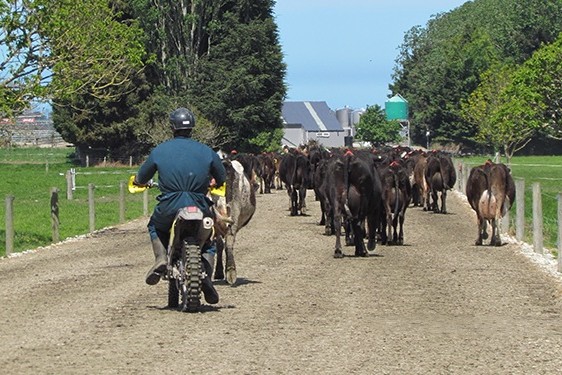Jackie Harrigan
With their highly evolved sense of smell, using dogs to detect drugs, explosives and food contraband has been proven over the years, but now a dog is being trained in New Zealand to detect early-onset prostate cancer from urine samples.
Six hundred Kiwi men die from prostate cancer each year and early detection and treatment has the potential to save lives. Detection currently requires either a blood test or a rectal exam, both quite invasive – but a urine sample is a very easy simple way of having a test.
Freida, the German Shepherd K9MD on display at the Mystery Creek Fieldays, is a couple of months into her year-long training period. She will go through training and a validation process with a biostatistician and her training will be videoed and peer reviewed in the United States by an international canine scent detection expert. Once Freida is fully trained she will be able to work at shows, events and on urine samples sent through the post.
‘Ovarian cancer has no early diagnostic test but a dog can detect it early in a urine sample and greatly improve positive treatment outcomes.’
A dog’s sense of smell is so strong it can detect one part per trillion, comparable to detecting a teaspoon of sugar in two Olympic-sized swimming pools.
Apart from having more scent receptors in their nose (300 million compared to five million in humans), dogs use a larger proportion of their brain to analyse scent. The have worked overseas for many years with success rates in the high 90% range.
If the dog detects the presence of the disease, the person is then referred to a medical practitioner for further testing, diagnosis and treatment.
After prostate cancer, ovarian cancer is the next on the list to detect.
Head of Pathology at Otago University, Professor Sarah Young is chair of the K9MD academic advisory board and is excited by the potential for the dog detectors.
“Ovarian cancer has no early diagnostic test but a dog can detect it early in a urine sample and greatly improve positive treatment outcomes. And sending in a urine sample for testing makes early detection a possibility for rural people who live remotely.”
Canine detection programmes overseas include colorectal and lung cancer and dogs are being trained to detect early stage Parkinson’s disease.
- For more or to support the K9MD Trust: www.k9md.org.nz





